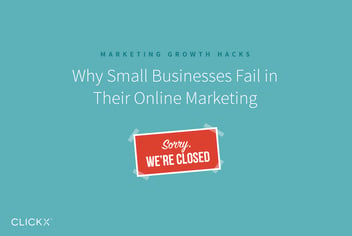Burger King Bribed Facebook Fans to “Unlike” Them. Here’s Why It Was Genius
You’ve heard that you shouldn’t let one bad apple spoil the whole bunch. But what if you had 30,000 bad apples?
That’s the situation that Burger King faced in Norway earlier this year. Though the company’s Facebook page boasted more than 38,000 fans, many of them were either outspoken in their dislike of the chain or simply looking for free food giveaways. Deciding that quality was more important than quantity, the company decided to encourage its less-devoted fans to hit the road.
Burger King launched a new Facebook page, and with it, extended an offer to its fans: devoted followers could join the new page, while others could sign up to receive a coupon for a free Big Mac from McDonald’s. Anyone who chose the coupon would be banned from joining the new page and was labeled a “Whopper Sellout,” receiving a goodbye note from Burger King in the mail and a badge for their Facebook timeline.
The result? Burger King Norway lost about 30,000 followers—quite a few Big Macs, all in all. It kept more than 8,000, though, and while the campaign ended in May, the Facebook page now has more than 10,000 total fans.
Was it smart to offer free food from the competitor and lose tens of thousands of Facebook fans all at once? Absolutely. Here’s why.
1. The campaign was on-brand
Burger King’s Whopper Sellout program may seem risky from the outside, but it was an on-brand move that perfectly complements the company’s identity.
The chain has run similar social campaigns in the past, calling on its followers to make a choice between their principles and free food. In 2009, the company orchestrated the “Whopper Sacrifice” promotion on Facebook, which offered a free Whopper to any user who unfriended 10 people (the promotion’s app automatically notified the deleted friends that they had been sacrificed in exchange for a sandwich).
This campaign simply made users put themselves on the chopping block rather than their friends, and the brand’s cheeky flair for the theatrical made it comical rather than confrontational. Not any business could have pulled it off, but Burger King’s well-established brand identity made it appropriate.
2. It was an acceptable risk
While 30,000 Big Macs is more than most people eat in a lifetime, it was an acceptable risk for Burger King Norway. Even if the company had lost every single Facebook fan it had in the promotion, it wouldn’t have had to give away more than 40,000 burgers—a relatively small risk for a major international chain.
In the United States, however, this would be a different story. The U.S. Burger King Facebook page has more than 6.5 million fans—a number higher than the entire population of Norway. If the company ran the same promotion here and lost the same percentage of fans, it would be out more than 5 million Big Macs.
So to us, the idea of rolling the dice the way Burger King did in Norway may sound like an outrageous gambit. In context, though, it was a simple matter of cost/benefit analysis with a relatively low risk factor.
3. It had a lasting payoff
We all preach the value of quality over quantity, and Burger King took the concept in a bold new direction.
Rather than tolerating the insults and brazen freebie requests that continually polluted its Facebook page, the company cleaned house and made it a more hospitable place for itself and its loyal fans. The numbers aren’t as impressive, sure—they have nearly two-thirds fewer “likes” than they used to. “Likes” are largely a vanity metric, though, and Burger King is undoubtedly better off with a small pool of dedicated, loyal and engaged fans.
So what does it mean for the average brand? Certainly not that you should bribe Facebook fans into leaving you alone. Rather, it means that you shouldn’t be afraid to take risks. Burger King Norway’s solution wasn’t just pragmatic—it was creative and on-brand, it didn’t pose a financial threat, and it had a massive payoff that the company still benefits from today. And that’s worth a lot more than a few thousand meat patties.



